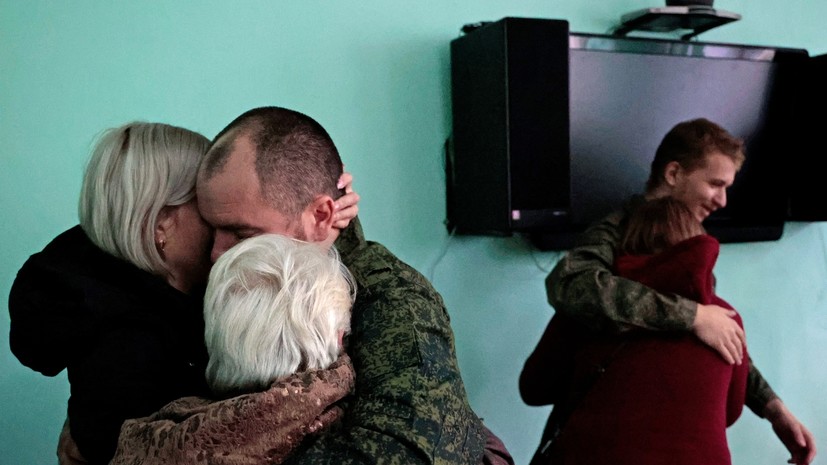On Thursday, October 3, 107 Russian soldiers returned from the territory controlled by Kyiv.
“On November 3, as a result of the negotiation process, 107 Russian servicemen were returned from the territory controlled by the Kyiv regime, who were in mortal danger in captivity,” the Russian Defense Ministry said in a statement.
- The released people will be delivered to Moscow by aircraft of the military transport aviation of the Russian Aerospace Forces for treatment and rehabilitation in medical institutions of the Russian Ministry of Defense.
All those released are provided with the necessary medical and psychological assistance.”
Acting head of the Donetsk People's Republic Denis Pushilin said earlier on Thursday: “Today we are returning 107 of our fighters from Ukrainian dungeons.
We give Ukraine the same number of prisoners, mostly Veseushniks again.”
As Denis Pushilin clarified, most (65 people) are from the Donetsk and Lugansk People's Republics.
“Soon they will be able to hug their loved ones,” he said.
The Commissioner for Human Rights of the Donetsk People's Republic, Daria Morozova, noted that exchanges began to take place more often.
“This cannot but rejoice.
I understand the state of our guys there.
The fighters interviewed by the apparatus and by me personally from the beginning of the SVO indicate that during their time in captivity in Ukraine, illegal methods of interrogation, torture, moral and physical pressure were used against them, ”she told RT.
Moreover, the Ukrainian side also influences the relatives of the fighters who are both on the territory of Russia and on the territory of the DPR, Morozova added: “They post videos on which people are tortured, mocked at them.
And relatives of prisoners of war, of course, are in an extremely negative, depressed state because of this.
"Return to Families"
“It is very important that our guys return home, and here it should be noted what Denis Pushilin is doing by participating in this process.
Not only representatives of our new regions (Lugansk, Donetsk) are returning, but also military personnel directly from the Russian Federation, ”State Duma deputy Artyom Turov told RT.
As the parliamentarian noted, the exchange of prisoners is a very responsible job that requires a serious attitude.
“It is important that psychological and other necessary assistance be provided to the children as soon as possible.
The main thing is that they return home alive, to their families, to their homeland.
Of course, this is a big event for everyone," Turov said.
Military expert Vladislav Shurygin believes that the exchange of prisoners should be ongoing.
According to Artyom Turov, the formula when the number of people matches is optimal.
“Contacts are being made, various formulas are being applied depending on the events that are taking place.
But the formula “equal number for an equal number” is adequate, correct and authoritative from the point of view of the exchange of prisoners,” the deputy noted.
"We are always ready for dialogue"
According to a military expert, retired colonel Viktor Litovkin, there are doubts that the captured Ukrainians will fulfill their promises and will not take up arms again, but the main thing is that our prisoners of war will return home.
“We save our guys, we know how they are treated in captivity: they are mocked there, mutilated.
While we treat Bandera according to the Geneva Convention.
So we released the leaders of Azov, there was a condition that they would be in Turkey.
So far, there have been no reports that they have returned to Ukraine and are participating in hostilities,” says Viktor Litovkin.
At the same time, Daria Morozova noted that the Ukrainian side often slows down the exchange.
According to her, the enemy likes to change lists for exchange at the last moment.
“Relatives, respectively, are waiting for their loved ones, and their loved ones are not included in these lists.
As far as I understand, this tactic has been in place since 2014, when Ukraine can simply replace some names in the list during the exchange process,” the Ombudswoman said.
“Of course, I would like the procedure to go even faster and, accordingly, for the Ukrainian side to approach this more seriously, because we are always ready for dialogue and are ready to work and cooperate in this process.”
The Commissioner for Human Rights in the DPR also said that some fighters have been in Ukrainian captivity since the start of the special military operation in February.
“However, Ukraine does not want to include them in the exchange lists, although they are ordinary privates,” she added.

